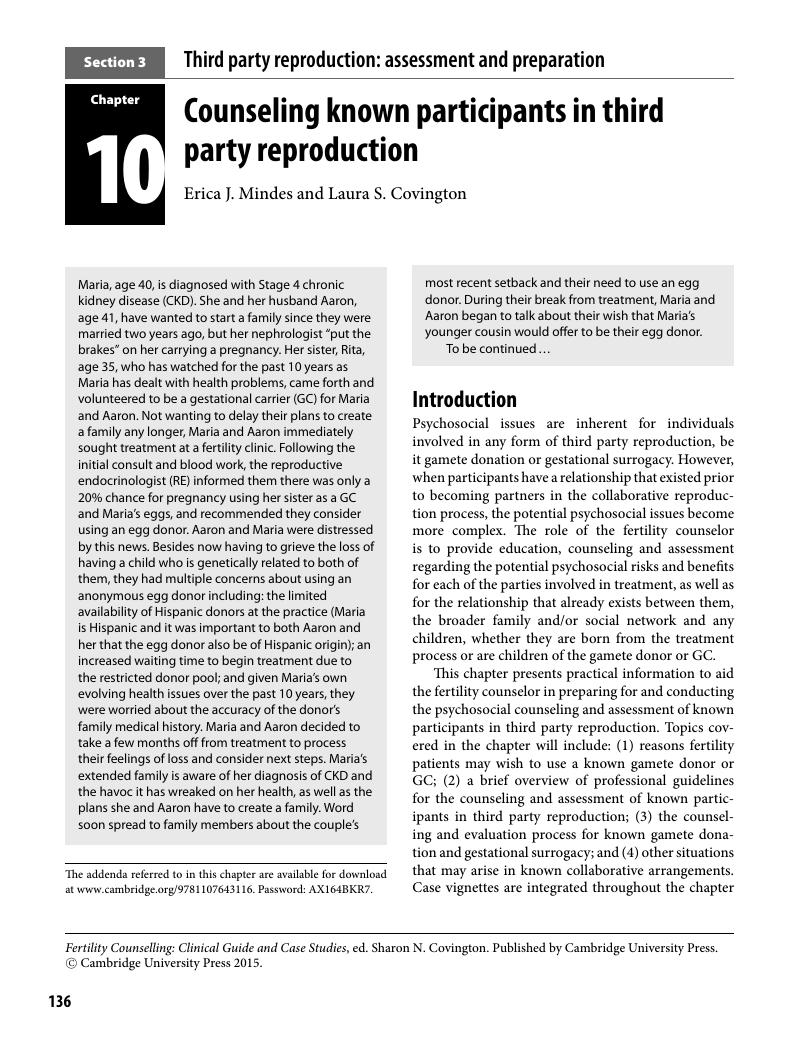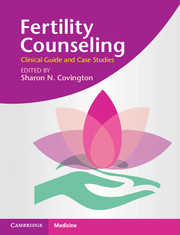Book contents
- Fertility CounselingClinical Guide and Case Studies
- Fertility Counseling
- Copyright page
- Dedication
- Contents
- Contributors
- Foreword
- Book part
- Section 1 Introduction
- Section 2 Therapeutic approaches
- Section 3 Third party reproduction: assessment and preparation
- Chapter 7 Counseling recipients of anonymous donor gametes
- Chapter 8 Counseling anonymous gametedonors
- Chapter 9 Counselingsurrogate carrier participants
- Chapter 10 Counseling known participants in third partyreproduction
- Section 4 The expanding image of families
- Section 5 Special topics in fertility counseling
- Section 6 Practice issues
- Glossary
- Index
- References
Chapter 10 - Counseling known participants in third partyreproduction
from Section 3 - Third party reproduction: assessment and preparation
Published online by Cambridge University Press: 05 May 2015
- Fertility CounselingClinical Guide and Case Studies
- Fertility Counseling
- Copyright page
- Dedication
- Contents
- Contributors
- Foreword
- Book part
- Section 1 Introduction
- Section 2 Therapeutic approaches
- Section 3 Third party reproduction: assessment and preparation
- Chapter 7 Counseling recipients of anonymous donor gametes
- Chapter 8 Counseling anonymous gametedonors
- Chapter 9 Counselingsurrogate carrier participants
- Chapter 10 Counseling known participants in third partyreproduction
- Section 4 The expanding image of families
- Section 5 Special topics in fertility counseling
- Section 6 Practice issues
- Glossary
- Index
- References
Summary

- Type
- Chapter
- Information
- Fertility CounselingClinical Guide and Case Studies, pp. 136 - 149Publisher: Cambridge University PressPrint publication year: 2015



